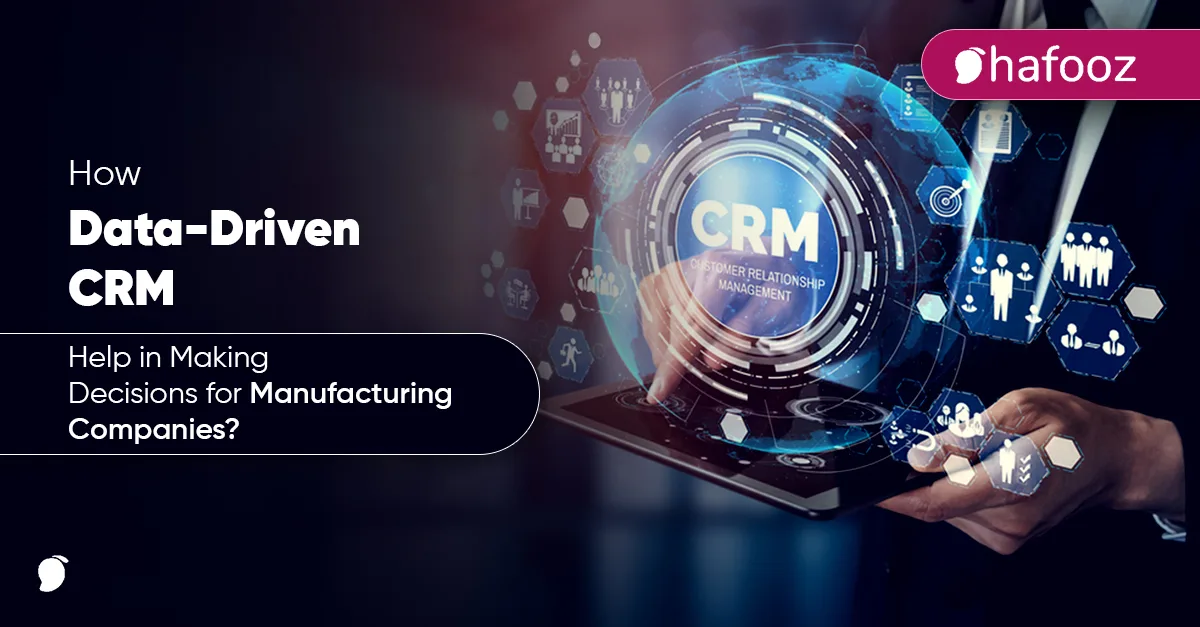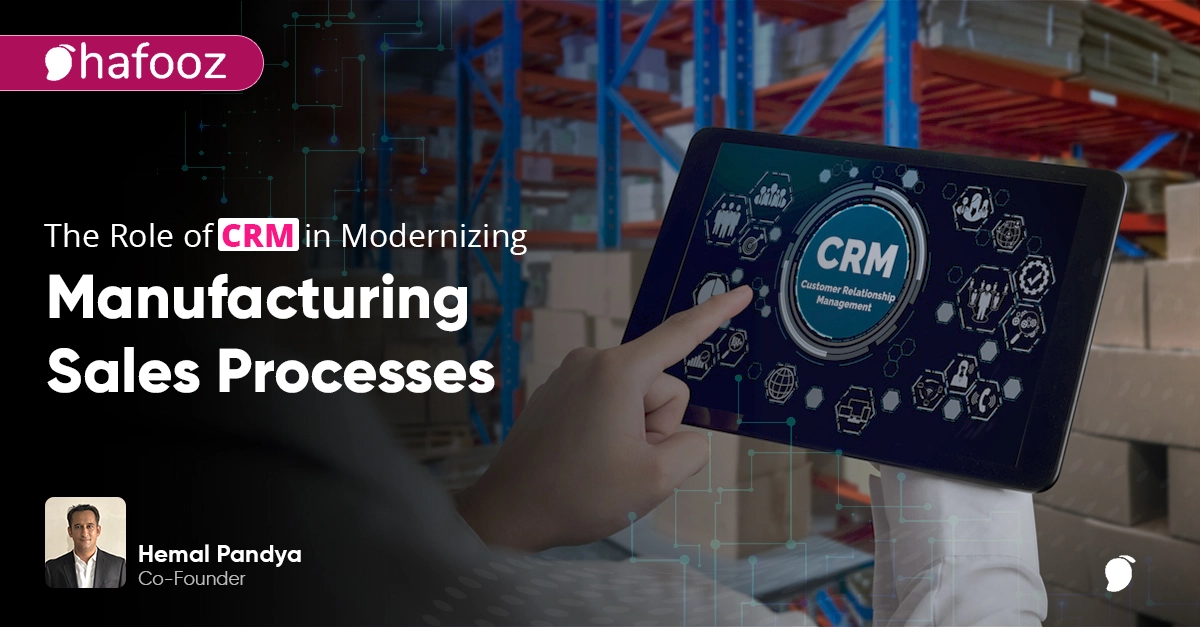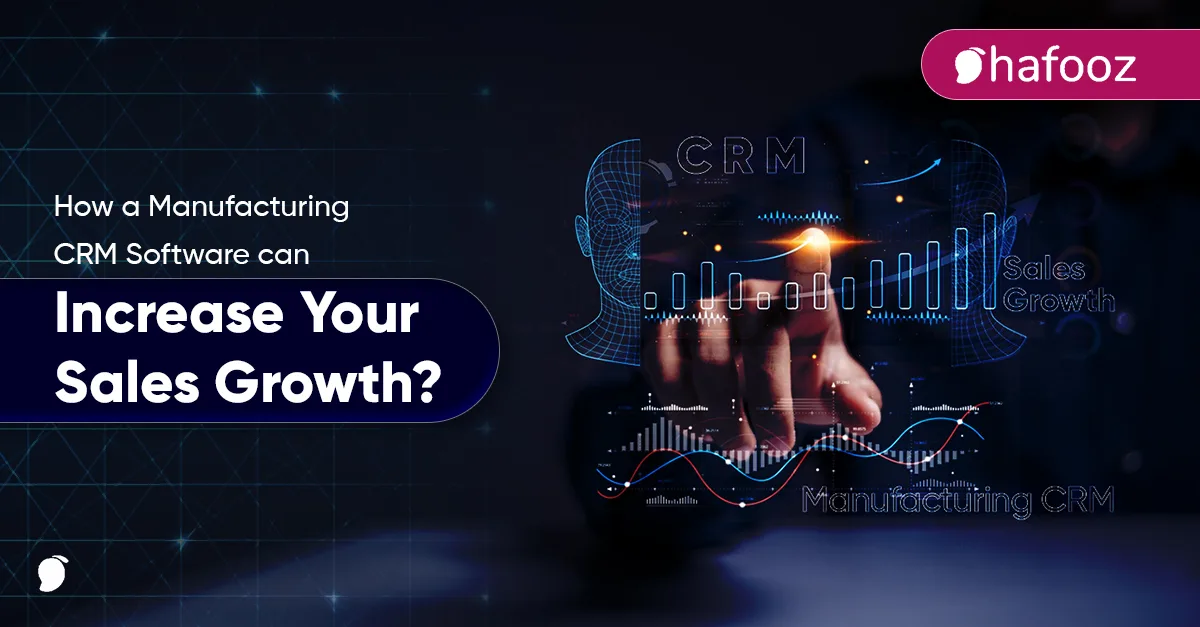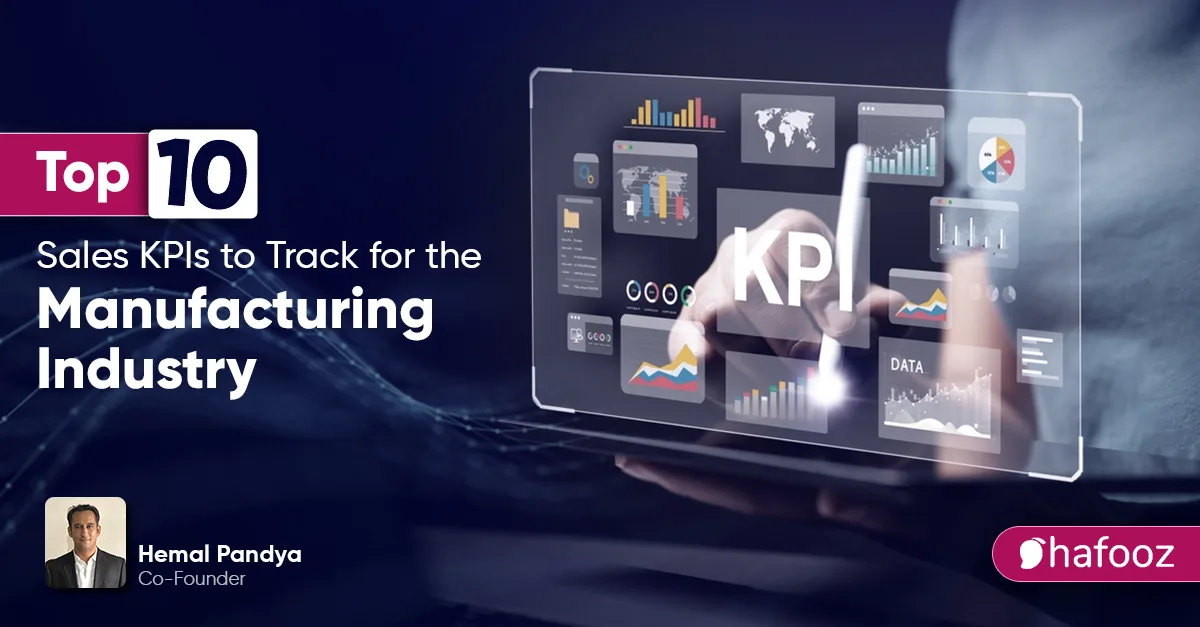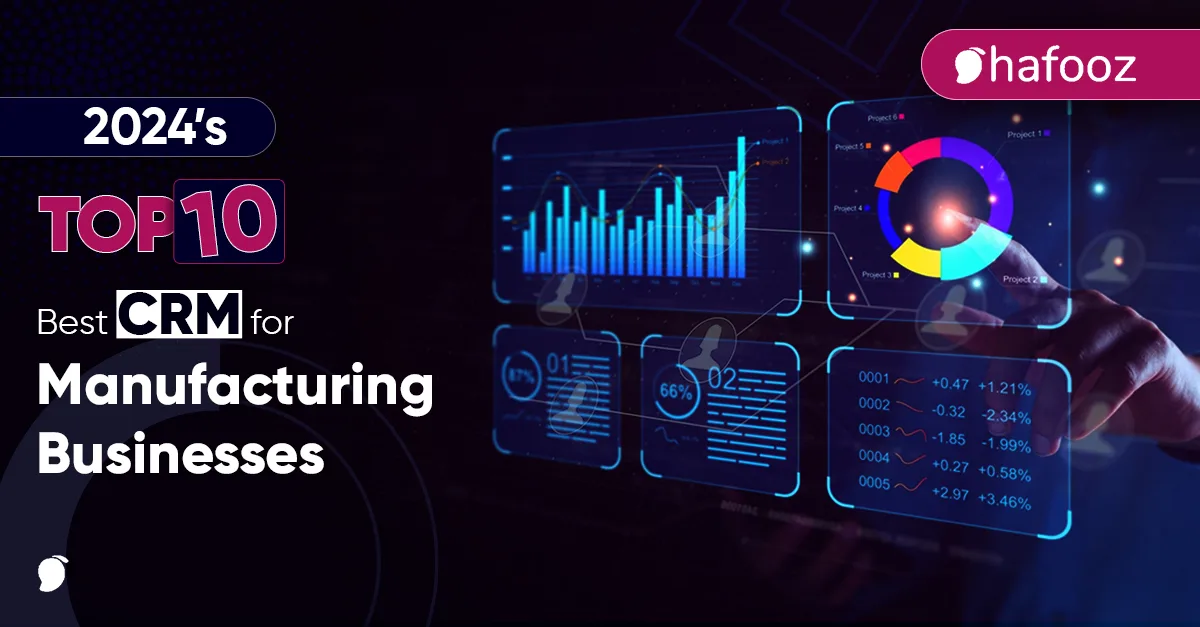Are you tapping into the full potential of your business’s most valuable asset, “data”?
In today’s competitive world, where everyone is in a rush to stay ahead of others and margins are razor-thin, the ability to leverage data effectively isn’t just advantageous; it’s indispensable.
But how can you use your data to make informed and strategic decisions for your business? That’s when CRM software for manufacturing steps in as your game-changer.
In this blog, we’ll explore how CRM can help you make informed, data-driven decisions in real time.
Without further delay, let’s jump straight into it.
What's on this page:
What is CRM Software?

As the name implies, CRM (Customer Relationship Management) software is used to manage customer relationships.
CRM is more than just software – it’s a full-fledged strategy that uses technology to oversee and analyze customer interactions throughout their journey with your company. This approach brings together people, processes, and technology to boost customer satisfaction, foster loyalty, and increase profitability.
Utilizing CRM software and applications, businesses can efficiently gather, store, and access crucial customer data. This empowers them to make informed decisions and deliver personalized experiences.
But CRM is not just for big players like real estate, legal organizations, and banking. Manufacturing industries have also started using CRM software. Why? Let’s explore this further.
Why Do You Need CRM in the Manufacturing Industry?
As manufacturers, we know that you do not sell directly to consumers like eCommerce giants, but you still rely heavily on data to streamline operations, manage supply chains, and stay ahead of the competition.
With CRM software in your toolbox, you can track customer interactions, manage leads, and even predict future demand. The best thing here is you can do it all while staying in sync with the rhythm of your business.
But CRM isn’t just about making sales. It’s about building relationships that last a lifetime. Data-driven CRM tracks everything from support and repairs to upgrades and sales from the moment a product leaves your warehouse.
It enables you to engage with customers, channel partners, and distributors throughout the manufacturing lifecycle. This ensures a seamless end-to-end experience for your customers.
Let’s delve deeper and understand data-driven decision-making and how data can guide your business decisions.
What is Data-Driven Decision Making?
Data-driven decision-making involves utilizing data to inform and validate decisions aimed at driving business growth. In simpler terms, it means making decisions based on facts and figures, not just randomly or on gut feelings.
By identifying appropriate Key Performance Indicators (KPIs) and tools, you can mitigate biases and make well-informed managerial judgments that align with your strategic objectives.
Moving further, let’s explore how you to make data-driven decisions effectively by using data-driven CRM software.
How Can Data-Driven CRM Boost Decision-Making For Manufacturers?
A CRM is essential for any business aiming to implement data-driven decision-making. Without it, companies might face challenges in effectively monitoring the customer lifecycle, particularly in managing data across various sources or stages of customer relationships.
Through comprehensive analytics and up-to-date data, businesses of all sizes can enhance their efficiency and drive business growth. Let’s delve deeper and shed some light on how CRM software can facilitate data-driven decision-making.
1. Analyzing Consumer Behavior
An essential aspect of CRM software involves the analysis of customer data. Given the diversity of your customer base, it’s crucial to gather, store, and assess extensive data on customer behavior.
This encompasses their purchase history, product preferences, and feedback. By examining past data, you gain deeper insights into customer requirements. This enables you to make better-informed decisions regarding future product enhancements, marketing strategies, and sales approaches.
2. Evaluation of Sales Performance
CRM tools help you reach more potential customers. They support your pipeline management strategies, helping you keep track of everything from leads to deals. With CRM software, you get detailed insights into your sales performance.
You can monitor things like conversion rates, sales growth, and the duration of the sales cycle. This data empowers you to establish more achievable sales targets and pinpoint areas for improvement.
Consequently, you can enhance productivity across your sales teams, ultimately leading to sustained growth.
3. Predicting Market Trends Through Analytics
Understanding the requirements of an expanding and diverse market can be a stumbling block for many businesses. Access to customer information is crucial, particularly when decision-making processes are based on that information.
Utilizing historical data on customer behavior and market trends can enhance the precision of sales forecasts and market analysis reports. Armed with these insights, your sales and marketing teams can make their tasks easier by,
- Refining task prioritization.
- Planning
- Formulation of marketing and sales strategies.
4. Enhanced Customer Segmentation
CRM enables manufacturers to categorize their customers into distinct segments more effectively. How? By doing the following,
- Centralizing customer data
- Analyzing various metrics such as buying behavior, product preferences, and industry-specific needs.
This segmentation allows for targeted marketing campaigns and personalized sales approaches tailored to each segment’s preferences and requirements.
Additionally, CRM systems facilitate tracking customer interactions across different channels. It also provides valuable insights for refining segmentation strategies and improving overall customer engagement and satisfaction.
5. Boost Customer Lifetime Value
CRM (Customer Relationship Management) systems play a crucial role in maximizing Customer Lifetime Value (CLV). Does this statement ring true in practice? Well, Yes. This is because CRM software allows you to,
- Centralize customer data
- Enable personalized communication
- Segment customers
- Automate engagement
- Provide proactive support
- Leverage predictive analytics to forecast customer behavior.
This helps nurture stronger relationships and deliver exceptional customer experiences. Thus, CRM software helps you retain customers, increase loyalty, and ultimately boost their lifetime value.
6. Calculate Market ROI
CRM software helps you to access market ROI by providing comprehensive data on customer interactions, sales pipelines, and marketing campaigns.
By tracking leads, conversions, and customer engagement, you can analyze the effectiveness of your marketing strategies. CRM tools offer insights into which campaigns generate the most sales and which channels deliver the highest ROI.
Additionally, CRM systems enable you to attribute revenue to specific marketing activities. This helps you to allocate resources more efficiently and optimize your marketing efforts for maximum ROI.
7. Sales Pipeline visibility
Experienced sales representatives recognize the vital role of arranging leads in a user-friendly system. CRM systems offer seamless visibility into the sales pipeline, enabling businesses to monitor the advancement of leads and opportunities.
This comprehensive perspective facilitates the identification of essential key performance indicators (KPIs), allowing for a quick assessment of pipeline health. It also helps you prioritize important KPIs and sales metrics, making it easier to track sales and marketing activities effectively.
8. Deepen Customer Engagement
CRM analytics offer a complete view of customer data, helping you understand customer preferences and behaviors. Sales teams can use data-driven CRM systems to jot down detailed notes during customer interactions, predicting future needs and streamlining service.
These notes include vital information like preferred contact times and communication choices. By leveraging these details, you improve customer satisfaction and show dedication to personalized service.
9. Strengthened Ties with Suppliers and Partners
CRM technology offers more than just customer relationship management; it also facilitates effective management of supplier and partner relationships.
By efficiently managing data, you can use data-driven decision-making to inform on negotiations with suppliers and agreements on contracts.
Data security is also crucial when handling B2B relationships, so it’s important to choose a data-driven CRM tool that prioritizes protecting user data.
Unlock the full potential of your business with the transformative power of CRM, and experience firsthand the unparalleled benefits of CRM.
Data-Driven Decision-Making Journey
To sum up, by effectively utilizing data and measuring your progress, you can steer your business toward unprecedented growth.
Remember, avoiding missteps in data-driven decision-making is crucial for achieving optimal results.
At hafooz, we’re dedicated to empowering you to make the best decisions for your business. With our AI-powered manufacturing CRM solutions and easy-to-use interface specially designed for small and medium enterprises, we just don’t offer a CRM platform; we call for endless opportunities.

